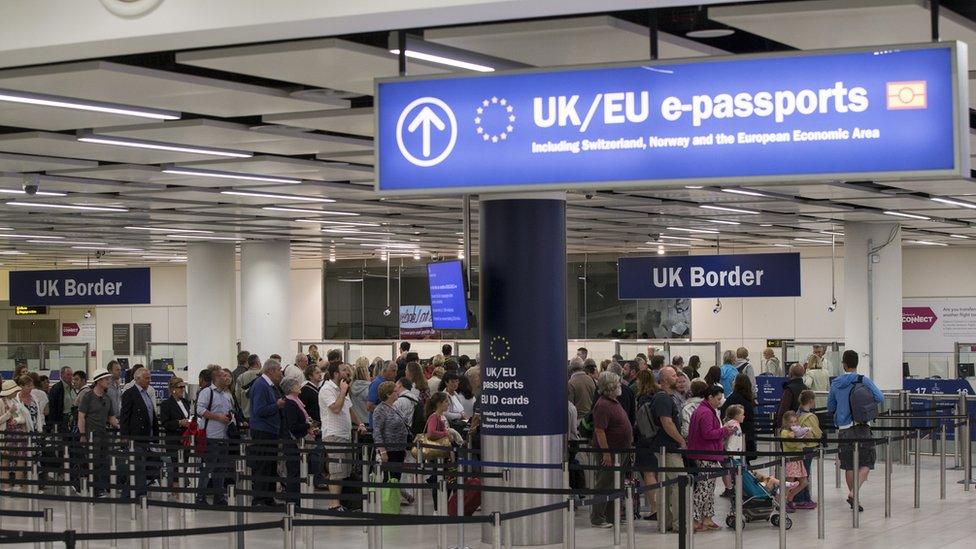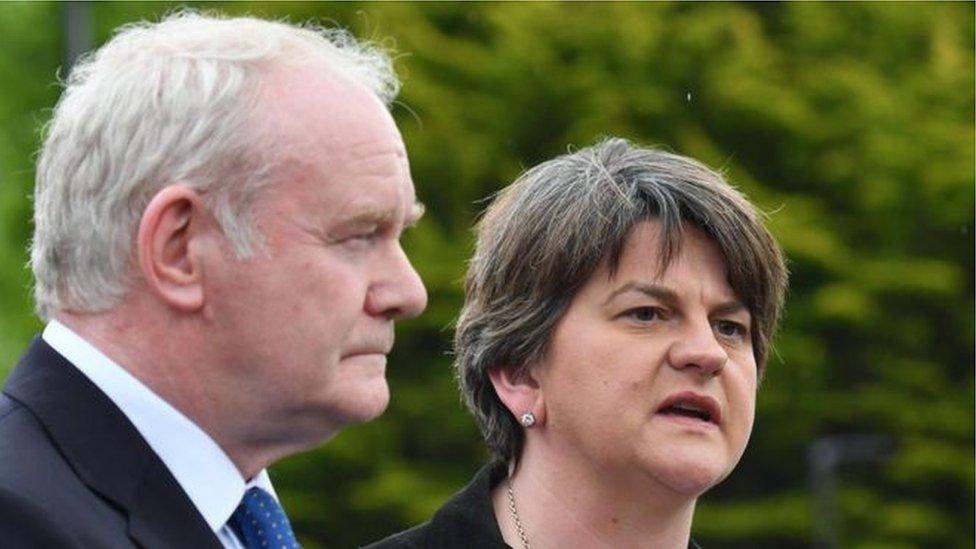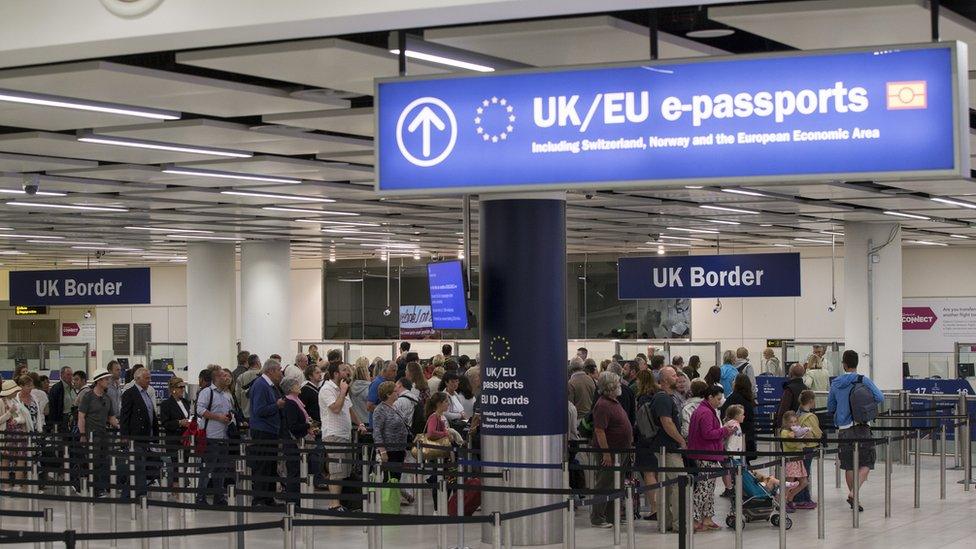Brexit: Low skill NI immigration regime rejected
- Published

The Migration Advisory Committee advises the UK government on migration.
Northern Ireland should not have a separate low skill immigration regime after Brexit, a committee has said.
The Migration Advisory Committee (MAC) advises the UK government on migration.
Before power-sharing collapsed, Arlene Foster and Martin McGuinness wrote a letter, external on Brexit emphasising the need for NI to "allow access to unskilled as well as highly skilled labour".
MAC said post-Brexit recruitment problems should be met with "support to increase investment and productivity".
It added this would especially be the case for what it terms, the "important but low skill agri-food sector".
In recent years, a range of NI industries have increased their reliance on EU migrant workers, including agriculture, food processing and hospitality.

Martin McGuinness and Arlene Foster wrote a joint letter prior to the collapse of devolved government in Northern Ireland
The former first and deputy first ministers wrote that it was necessary for both private and public sector employers who are "heavily dependent on EU and other migrant labour".
In May of this year, external, the Head of the NI Civil Service David Sterling wrote to the MAC, expressing his fear that "were Northern Ireland employers to find themselves in a scenario where they had access to skills and labour on a more constrained basis than their Republic of Ireland counterparts".
He added: "There is a very real risk of Northern Ireland employers being forced to relocate activity south of the land border to maintain their competitive advantage."
In a report published on Tuesday, the Committee acknowledged that as the only part of the UK with a land border with the EU, Northern Ireland could be particularly sensitive to firms relocating economic activity to the Irish Republic after Brexit.
However, it points out that the national minimum wage in the Republic of Ireland, at approximately £8.50 per hour, is already higher than the £7.38 in the UK (or £7.83 for those over 25).
The MAC report argues that "the alternatives of either having a separate low-skill migration regime for Northern Ireland or letting these issues drive the design of a UK-wide system seem less attractive to us".
- Published28 June 2018
